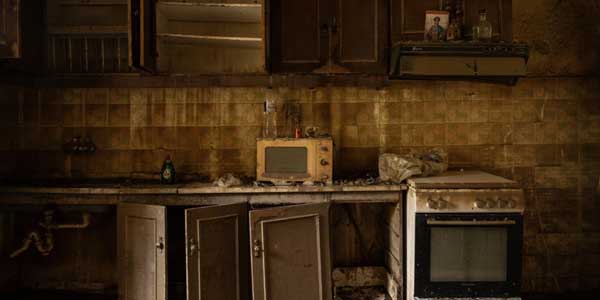When Storm Daniel unleashed its fury upon the central Greek village of Vlochos earlier this month, Nikos Falangas had little time to escape the cataclysmic deluge.
Now, three weeks later, as Vlochos remains buried beneath tonnes of mud, Falangas stands in disbelief, gazing at the remnants of his family's once-beloved home.
"All I could save was a family photograph and one of my child's toys. This is all that's left of the house where I was born and raised," he shared, his emotions quivering beneath the weight of the devastation. "Words cannot describe the tragedy we are going through," he added, struggling to hold back tears.
Eri, an Albanian labourer from a neighbouring village, assists in retrieving appliances from another damaged house. He recounts how, at the peak of the flood, the water had surged to the roofs of the traditional single-story houses, an astonishing four meters (13 feet) high. "Nothing can be done here," he somberly concludes.
With most villagers having evacuated, the few dozen who remain have sought refuge in the local church, perched atop a hill, offering some respite from further flooding.
This unprecedented storm claimed 17 lives and left a swath of destruction in Thessaly, the agricultural heartland of Greece. The deluge not only drowned tens of thousands of farm animals but also engulfed warehouses storing fertilisers, weedkillers, gasoline, and other chemicals, resulting in a toxic mix of floodwater.
Outside every home in Vlochos, piles of ruined furniture, appliances, and clothing lie in disarray, surrounded by the noxious odor of decaying animals and contaminated water.
As the villagers of Vlochos grapple with the daunting task of rebuilding their lives, ominous storm clouds once again gather in the sky. Lightning slashes through the atmosphere, and heavy raindrops begin to fall.
A new storm front, named Elias, is predicted to strike Greece, bringing heavy rain and sleet.
Amidst criticism for perceived shortcomings in coordination between the military and civil protection during the initial hours of the disaster, the government has committed to allocating over two billion euros ($2.1 billion) for reconstruction efforts.
Dimitris Malai, a 27-year-old resident, expresses his determination to rebuild his life in the village. "This is where we grew up. We want to rebuild our village. But the authorities must do something for us; otherwise, life cannot return here," he insists.
Yet, some residents of Vlochos remain dissatisfied with the government's response. Apostolis Makris, a 62-year-old police officer, laments, "No one came to see us, to help. Only some volunteer organisations supported us."
Dimitris Anastasiou, a frustrated 68-year-old villager, adds, "Sending us bottled water is not enough. We had everything, and now we have nothing. They are crooks," referring to the government.
His wife, Gogo, 65, breaks down as they return to their devastated home. "The memories of an entire life were lost, in addition to our property," she mourns. "All our family heirlooms, photographs, and items of great sentimental value were destroyed. It's as if a major part of my life was torn out," she says. "This is what hurts the most."



























